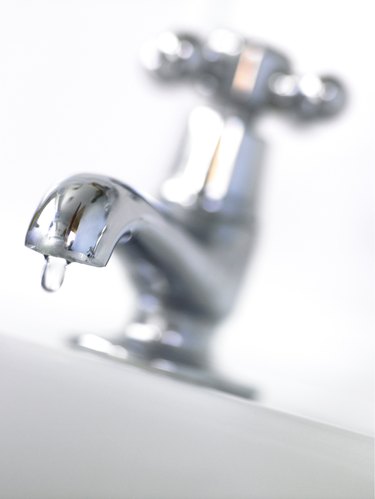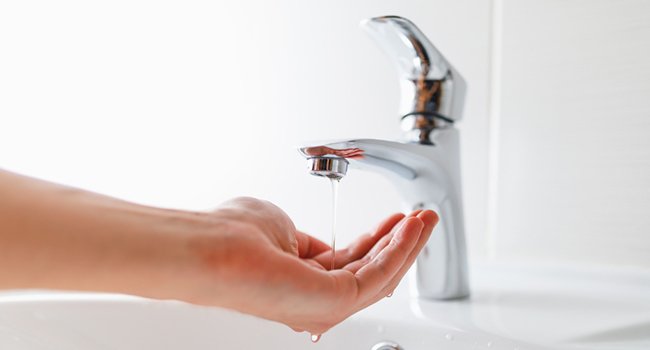Effortless Steps to Increase Low Water Pressure in Your Home
Effortless Steps to Increase Low Water Pressure in Your Home
Blog Article
We have noticed this great article about Dealing with Low Water Pressure in Your Home listed below on the internet and think it made good sense to talk about it with you in this article.

Low tide pressure in your home can be an aggravating problem, affecting everything from showering to cleaning dishes. If you're experiencing weak water flow, there are several possible causes and remedies to check out. In this overview, we'll discuss usual factors for low water stress and functional actions to attend to the concern successfully.
Introduction to Low Water Stress
Low tide stress occurs when the flow of water from your taps, showers, and other components is weaker than normal. This can make daily tasks much more difficult and much less reliable. Recognizing the sources of low water pressure is essential to locating the best remedy.
Typical Root Causes Of Low Water Pressure
Faulty Pressure Regulatory Authorities
Pressure regulatory authorities are accountable for preserving regular water pressure in your home. If they malfunction, it can result in low tide stress or unequal circulation throughout the house.
Local Water Supply Issues
Sometimes, the problem lies outside your home. Municipal supply of water issues, such as main line leaks or upkeep job, can temporarily decrease water pressure in your area.
Pipeline Obstructions
Gradually, pipelines can come to be blocked with mineral deposits, debris, or debris, limiting the circulation of water. This is a common issue in older homes with galvanized steel pipelines.
Deterioration
Corrosion within pipes can cause leakages and decreased water stress. Corrosion buildup can tighten water flow, specifically in aging plumbing systems.
How to Identify Low Water Pressure
Evaluating Pipes
Inspect visible pipelines for signs of leakages, rust, or blockages. Take note of any uncommon sounds, such as banging or rattling pipes, which can indicate issues within the plumbing system.
Consulting with a Plumber
If you're unable to determine the reason for low tide stress, consider employing a professional plumber to conduct a thorough assessment. They can identify underlying problems and advise proper options.
Inspecting Faucets and Fixtures
Begin by examining the water stress at different taps and components throughout your home. If the issue is isolated to details areas, it might indicate localized problems.
Do It Yourself Solutions to Take Care Of Low Water Stress
Flushing Hot Water Heater
Debris build-up in the water heater can limit flow and lower performance. Purging the container regularly helps eliminate debris and maintain optimal performance.
Checking Pressure Regulatory Authority
Ensure that the pressure regulatory authority is functioning correctly. Changing or changing the regulatory authority can help bring back proper water stress throughout your home.
Cleaning Up Aerators and Showerheads
Mineral deposits can build up in aerators and showerheads, lowering water flow. Remove and clean these components regularly to improve water pressure.
Clearing Clogs in Water Lines
For minor clogs, try using a plumbing serpent or chemical drain cleaner to clear blockages in pipes. Be cautious when utilizing chemicals and follow security guidelines.
When to Call a Professional Plumber
If DIY efforts fail to settle the issue or if you presume considerable plumbing problems, it's finest to look for support from a certified plumber. They have the know-how and tools to address complex concerns safely and successfully.
Safety Nets to Keep Water Pressure
Setting Up a Stress Booster
Consider installing a stress booster pump to improve water stress in areas with continually low flow. This can be particularly advantageous for multi-story homes or residential or commercial properties with high-demand components.
Surveillance Water Usage
Be mindful of water use routines and stay clear of overtaxing the plumbing system. Easy changes, such as astonishing showers and washing lots, can help keep appropriate water pressure.
Regular Maintenance
Schedule regular maintenance for your plumbing system to stop problems such as rust, leakages, and obstructions. Resolving small problems early can assist avoid more significant fixings later.
Final thought
Taking care of low water pressure can be aggravating, however identifying the underlying reasons and implementing suitable options can restore optimum circulation throughout your home. Whether it's cleaning aerators, checking pipes, or speaking with a plumber, taking aggressive steps can make sure a consistent supply of water for your everyday requirements.
HOW TO FIX LOW WATER PRESSURE IN YOUR HOUSE (EXPERT GUIDE)
The morning shower lacking any real pressure? Bathtub taking hours to fill? Or maybe you’re dissatisfied with the inadequate performance from your combi boiler?
Then you, like millions of others across the UK, might be experiencing low water pressure.
Fortunately, the good news is that you don’t have to continue living this way. The cause of low water pressure in the home is often quite simple, and you may not even require a plumber to fix the problem.
What causes low water pressure in the house?
If you are experiencing issues with water pressure throughout your home, then you may have one of the problems outlined below.
Most of these problems can be fixed quite easily, but for others, you may need to contact a plumber.
Obstructed Shutoff Valve
If you’ve just bought a new home or recently had building work conducted on your property, there is a chance that your water valves were not fully opened.
If the water valve is partially closed, then you may be restricting the amount of water entering your home. To fix this, simply ensure the valve is fully open.
If the valve appears fully open but you are still encountering reduced water pressure, then the valve may be broken. If this is the case, do not under any circumstances try to fix it without proper training.
Often found under your kitchen sink, a water valve will usually look like a bright yellow handle.
Again, if you believe the water valve is broken, contact a plumber immediately.
Leaks in Your Water Pipes
Leaks are the worst-case scenario when it comes to low water pressure.
If the water pipes are damaged, then this will cause low water pressure, as not all the water will make it to your taps.
After you’ve checked to see if the valve is fully open, you can conduct a leak check of your home. Now, this may seem scary, but it is actually quite simple.
Clogged Water Pipes
Clogged water pipes are one of the most common causes of low water pressure.
These clogs usually build-up when your home is supplied water via iron pipes. Iron is particularly vulnerable to rusting which can then break off and cause an obstruction within your system. You also face the problem of things like dirt, gravel or sand entering creating mineral deposits which further block water flowing from the mains water supply.
Unfortunately, if you suspect that clogged pipes may be restricting your water supply, then you will need to contact a plumber.
In this situation, you will either need to have your pipes removed and cleaned or in more severe cases, you could require a new set of water pipes.
Designer Taps
Designer taps look fantastic, but are they built to be efficient in your plumbing system? Modern taps are built for modern homes and they often have lower flow rates that are specifically designed for use within high-pressure systems.
Install a Water Pressure Booster Pump
If the issue is simply that the mains water pressure supply is too low, the simplest fix is to invest in a booster pump. Found in homes of all shapes and sizes, booster pumps are a relatively cheap option to add extra pressure to your home.
Designed to increase water pressure by passing water into the pump from your mains supply and then ejecting it into your home water system at a higher pressure, a booster pump is a truly simple and effective solution to increasing water pressure.
https://www.anchorpumps.com/blog/the-plumbers-guide-to-fixing-low-water-pressure/

We were brought to that write-up on from an associate on a different blog. Enjoyed reading our write up? Please quickly share it. Let another person check it out. We value your readership.
Call Report this page